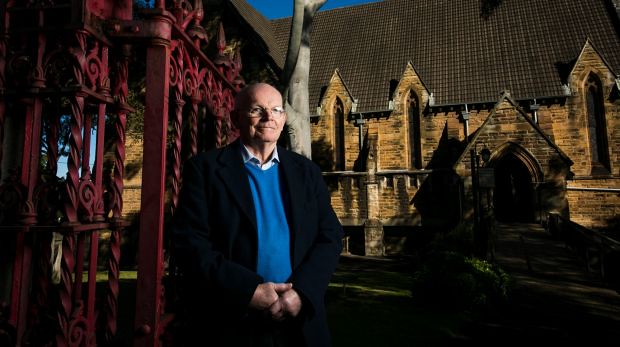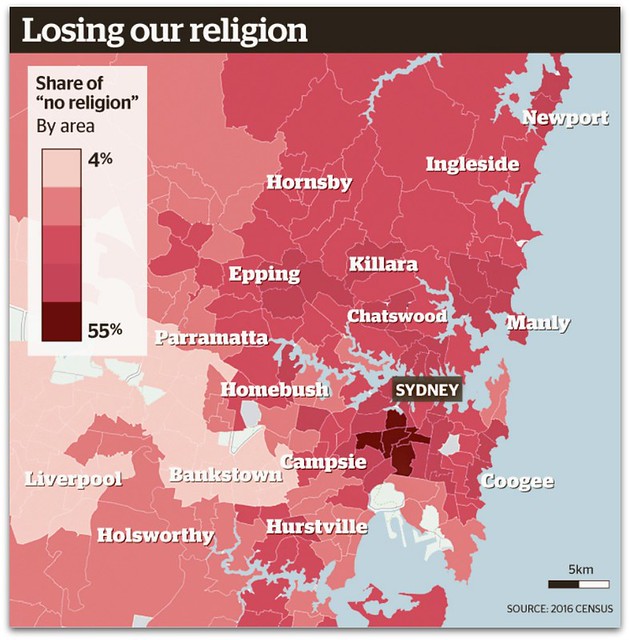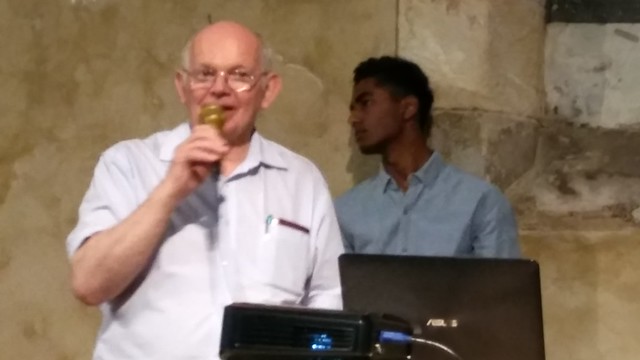Today's Eureka Street article is about Catholics who take their faith seriously but don't go to church.
It mentions Pope Francis' non-judgmental distinction between those who 'take part in community worship and gather on the Lord's Day' and those 'who preserve a deep and sincere faith, expressing it in different ways, but seldom taking part in worship'.
The article's writer Kevin Liston identifies himself as part of the latter group and so do I.
During the 24 years I've lived in my inner Sydney street, I've maintained a sporadic but enduring connection with the local parish church, St Joseph's Newtown. Because I rarely attend mass, I occasionally check out what's going on by going to their 'Faithworks' blog. I did that this morning and made an unnerving discovery.
For a while I'd been preparing myself for the shock of the retirement Father Peter Maher, the parish priest for nearly all of my time living here. He told me last year that he'd found retirement accommodation in the suburb where he grew up. He's not old for a retired priest, but he's very measured in his approach to his commitments, and it was clear to me that he was about to make a sensible choice to retire.
I was nevertheless shocked to read in the blog the text of the homily at Peter's 'Thanksgiving Mass on Retirement' last Friday. I don't know why I was shocked. I think I was less shocked when the previous parish priest ended his tenure after he disappeared when the plane he was piloting went down over Bass Strait in 1995.
Even though I only saw him a couple of times a year, Peter was my ideal parish priest. Earlier this month, his comments in a Sydney Morning Herald article on Sydney's most godless suburbs confirmed my appreciation of his approach to the decline of religious practice in Australia. Non-judgmental and inclusive.
At St Joseph's Newtown, I felt as welcome as a non-regular as I would have if I was a weekly mass goer.
I remember deciding that Sunday Mass was not for me back in 1991 when the priest's homily at a church elsewhere in Sydney took a very judgmental attitude to women who chose to have an abortion.
I was keenly aware that Peter took exactly the opposite stance in his work as Chair of the Rachel's Vineyard post abortion ministry. This was just one of the 'programs promoting acceptance and diversity' for which his service was recognised with an OAM in the 2014 Australia Day honours. Another was the Friday evening mass he celebrated for the LGBTIQ group Acceptance.
As editor of Eureka Street, I would collaborate with him in his work as co-editor of the National Council of Priests quarterly magazine The Swag. But my favourite initiative of his was the InterPlay sessions he would conduct in the church on Saturday afternoons several times a year.
InterPlay is a personal development movement, about movement of the body and its relationship with the mind. It has nothing to do with the Catholic Church or religion, and Peter's adversaries in the Church probably criticised him for conducting the sessions on church property and for being on the Board of its Sydney organisation. If you wanted to, you could describe it as godless.
Yet more than many other activities, I think it holds the key to the rebuilding of the Catholic Church after the sexual abuse crisis, in its promotion of a right relationship with the body. Its stated goal is to 'unlock the wisdom of the body... [to] enable you to find your creative power, collaborate with others, expand your personal awareness and discover your full potential'.
Links: Liston Faithworks Herald InterPlay


